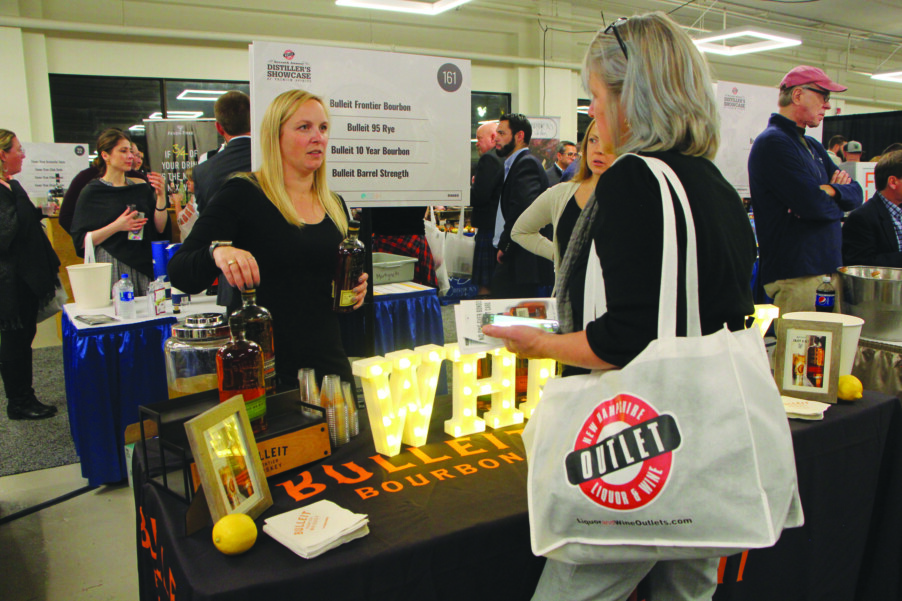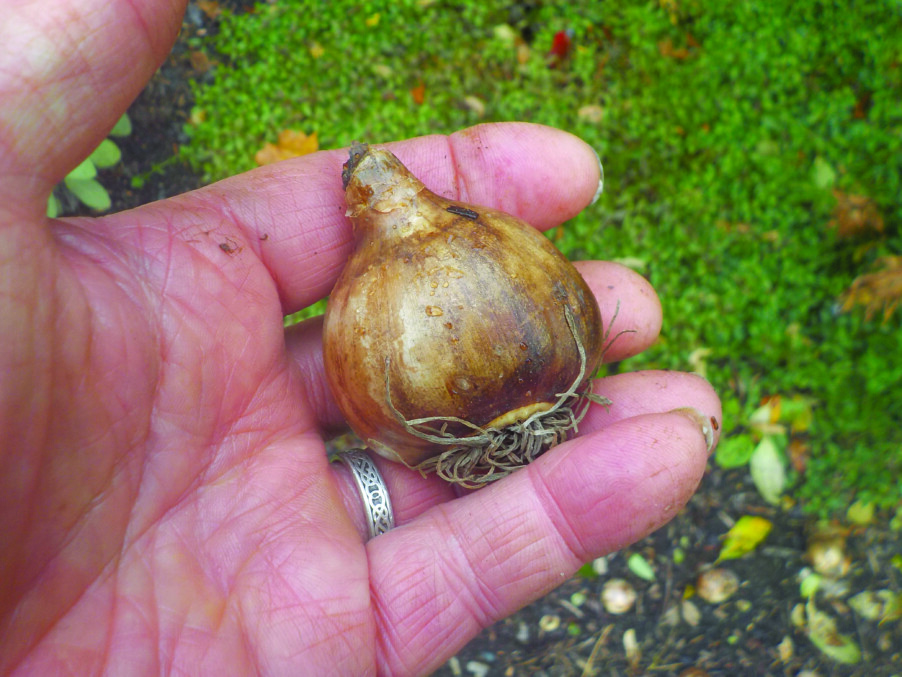New Hampshire Distiller’s Week returns
By Katelyn Sahagian
ksahagian@hippopress.com
New Hampshire in early November is the place to be for everyone who adores fine spirits like tequila, whiskey, gin and vodka. Celebrities of the industry come from across the country and the world to partake in the spirited celebration.
The annual Distiller’s Week, with the highlight event of the Distiller’s Showcase of Premium Spirits on Thursday, Nov. 3, is back.
When Mark Roy began Distiller’s Showcase and Week, it wasn’t something he anticipated getting this big. Roy conceived the show when he was hired as the New Hampshire Liquor Commission’s spirit marketing and sales specialist. He saw that there was a week-long celebration of wine in New Hampshire, and thought, why not one for liquor and spirits as well?
“We did a trial run our first year to see how it would work with the support of our local brokers,” Roy said. “We had a whopping 250 people in attendance and it was a smashing success.”
While it started off small, this year there are expected to be around 1,000 participants alone. Roy, when he spoke with the Hippo, said that more than 800 tickets had already been sold.
The showcase will have 180 booths set up with different brands of alcohol at many of them. The tables will offer tastings, and some will have specialty cocktails for people to try. Roy said that he recommends people look up the brands that will be visiting, to try to make a game plan of brands they want to see and have never experienced before.
“I tell them to use this as an event to try products that you normally wouldn’t try or maybe try ones a bit out of your price range,” Roy said. “If you make a checklist of who you want to see and what you want to taste, that’s a really good idea.”
There’s more than just alcohols and tastings. Brands like Pepsi and Stonewall Kitchen will have non-alcoholic beverages, water and cocktail mixers for people as well. Restaurants like 110 Grill, Tuscan Brands and Whole Foods Market will have stalls for people to peruse.
Before the Showcase, there will be a special event called A Taste of Ireland. The experience will begin at 5:30 p.m. on Wednesday, Nov. 2, at the Manchester Country Club (180 S. River Road., Bedford). This event was curated by Bord Bia, the food board in Ireland.
Teresa Phelan, the board’s Vice President of Alcohol for North America, said her entire job is to get people in America excited about Irish alcohols. While most people think of whiskey when it comes to Irish spirits, Phelan said that there is a growing emphasis on gin on the island.
“A lot of our distilleries started producing gin when they weren’t quite ready to release their whiskey, but they’ve used all these wonderful botanicals from the Irish countryside and made these excellent gins, which are now super-popular,” Phelan said. “They’re also not as traditionally juniper-heavy.”
A Taste of Ireland will highlight the love of gin with the Irish botanicals, but will also have an emphasis on the diverse flavors of Irish whiskey.
Phelan explained that while most whiskeys have a lot of rules they must follow, Irish whiskey isn’t bound to many more than having to be made in Ireland and contain malted cereal grain. For example, bourbon can only be made of over 50 percent corn and stored in new, charred white oak casks for at least two years before bottling.
This lack of hard rules on what makes Irish whiskey an Irish whiskey allows for distillers to have more freedom with the flavors and process, said Phelan. To really drive this point home, she had scratch-and-sniff booklets created for people to smell different parts of the distilling process, as well as the Irish countryside.
“I think one of the greatest things about Irish [whiskey] is that it’s got this distinct flavor profile,” Phelan said. “It’s a lot lighter, it’s fruity, it’s got some cereal notes.”
She added that a great example of this type of classic Irish whiskey is Jameson Original, which has a strong flavor of orchard-ripe apple, as well as a deep spice from the used bourbon casks it’s aged in.
While the flavors and variations of Irish whiskey are going to be highlighted at the event, Phelan said that the history of Irish whiskey was something she really wanted to drive home.
According to Phelan, there were hundreds of Irish distillers making whiskey in the 1700s. Nearly all the whiskey in the world was made in Ireland, and it was exported across the globe for consumers to enjoy.
The downfall of Irish whiskey was a twofold event, Phelan said.
“We would have had almost a distillery in every town in Ireland, except for Prohibition in the U.S., which was one of our biggest markets,” she said. “Along with us getting independence from the British, that cut off pretty much our sales market instantly.”
By the 1980s the total number of distilleries in Ireland had dropped to just two. Now, that number has grown to 42, a greater than 4,000 percent increase in a decade.
Many of the distilleries in Ireland will be featured in the Showcase, along with new whiskeys made in America — and, at least one new release is from the Granite State.
Tamworth Distilling, owned by Scott Grasse, is coming out with a new whiskey. Grasse, who engineered the viral Crab Trapper whiskey, is using a cone to help his newest creation during the aging process. The whiskey is called Dunce, an homage to John Duns Scotus, a Franciscan priest and philosopher who wore a cone-shaped hat because he believed it heightened his mind.
“It’s remarkable because it’s added magic to the aging process,” Grasse said. “You’ll taste it, [and] you’ll say, ‘What am I tasting?’ What you’re tasting is the divine energy of the universe.”
Grasse recently wrote a book about his life as a distiller with renowned spirits expert Aaron Goldfarb. It’s scheduled for a Nov. 8 release, just after Distiller’s Week comes to a close.
While Grasse and Goldfarb won’t be able to come up to celebrate the release of the book, or the whiskey, the Showcase is something they both look forward to hearing about.
“The New Hampshire Liquor Commission has been an amazing partner,” Grasse said. “New Hampshire is one of the biggest single buyers of spirits and [they’ve] been so helpful with us when we launched something. I don’t think we could be doing or leading the world in innovation if we didn’t have such an amazing partner.”
Ninth Annual Distiller’s Showcase
Where: DoubleTree by Hilton Manchester Downtown, 700 Elm St., Manchester
When: Thursday, Nov. 3, 6 to 8:30 p.m.
Price: Tickets start at $60
Visit: distillersshowcase.com
How are all the types of whiskey different?
Source: New Hampshire Liquor Commission
Bourbon
Must be made in America
Must have at least 51 percent corn in the mash
Must be aged in a new charred oak barrel for minimum of two years
Canadian
Must be made in Canada
Must contain no less that 40 percent alcohol by volume
Irish
Must be made in Ireland
Must have at least 30 percent malted grain in the mash
Japanese
Must be made in Japan
Is allowed to contain rice
Rye
Must be made from at least 51 percent rye
Scotch
Must be made in Scotland
Must be aged in oak barrels for at least three years
Age statement is the youngest age after bottling
Tennessee
Must be made in Tennessee
Mash must be at least 51 percent corn
Featured photo: Courtesy photo.






